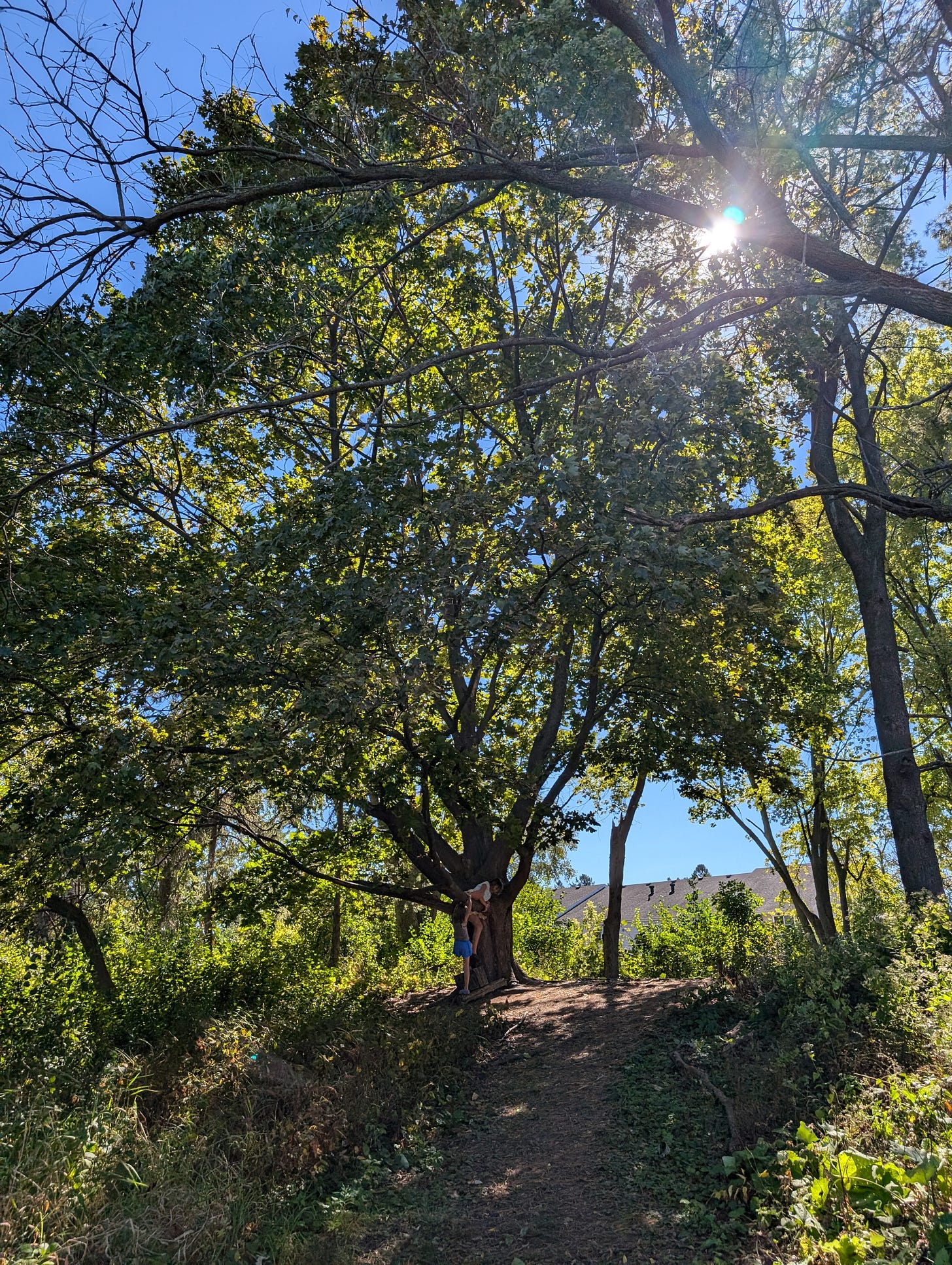Loving alignment
And the pain of getting there
Last week, I published an essay on KevinMD.com called Why it’s so hard to admit when we don’t like our jobs. The story was very personal to me, describing a time that felt very confusing and tender. After submitting the story, I’ve reflected on what has changed since that time, and how I see it differently in the rearview mirror.
A deeper sense of why
I don’t believe it is necessary to know why we don’t like our job to make a change. However, understanding the why can help us make wise choices in the future, and help us know what choice will actually help us. Since leaving my hospital medicine role, I have a better understanding of neurodivergence/neuroemergence (thanks The Financial Witch for that term), how it shows up for me, and how it impacts my life and work. I now have more clarity and a more compassionate perspective of the challenges I experienced practicing pediatric hospital medicine in a large academic setting in our current system of healthcare. Though I’m still understanding my location within the neurodivergent identity, I am certain that having ADHD played a role in the degree of overstimulation and exhaustion I experienced working in the academic hospital environment. Though I felt this knowing, I struggled to name or describe it until I read Divergent Mind by Jenara Nerenberg. She states, “High stimulation is both exciting and confusing for people with ADHD, because they can get overwhelmed and overstimulated easily without realizing they are approaching that point.” This made sense of my cycles of excited, engaged energy, that would eventually shift into exhausted depletion. I often didn’t know I was overstimulated and overwhelmed until it was at a very high level, and difficult to manage.
My reflections have also been a source of confidence about where I am at now - clinical work that is focused on one patient at a time, allowing me to hyperfocus and be immersed in the moment, my love for writing and speaking, which allows me to follow rabbit holes of interest, and develop a deep understanding of topics, then share with others. My role as a coach and facilitator, in which I can connect with others in small numbers, deeply and authentically. Now it feels like most of my work aligns with my sensory and energy needs, and I feel more energized, engaged, and integrated.
A catalyst for my ‘work’
It was also important to me to post this essay on KevinMD because it reaches a broad audience. Though a part of me still feels embarrassed to be so outspoken about my struggles and choices, I know it is important. I felt so alone in that experience and I hope that by writing about it, perhaps someone will see themself in it and feel less alone. I know there are others who feel stuck in a job that wasn’t made for them, but unable to see their way out. I believe it is one of the key purposes about telling our own story, so that others feel less alone in their own life.
Allowing others to be witnessed and supported through challenge and transformation is what drives me as a coach and group facilitator. While the themes of change, shame, allowance, and transformation show up in all humans, I particularly love working with physicians because the of the intensity of the expectations and conformity that the traditional professional identity can carry. I have worked with so many physicians who are both amazing physicians and also don’t see themselves in the traditional physician professional identity. Amazing folks who want to be in medicine through their own authentic expression.
The experience of feeling out of place in a work environment, or even society, transcends to many people across intersectional identities. Anyone who does not naturally align with the dominant culture or social expectations has to continually navigate how much to withstand being in a place or role that isn’t a good fit, and question when to try something else. For those with less privilege, there are often far fewer choices and more barriers to seeking change.
No matter our ability to leave or stay in our job, I feel there is a deep harm when we internalize messages that a misaligned environment or role means there is something wrong with us. Dr. Devon Price describes this for neurodiverse folks as “self-stigma”.
“Self-stigma is a liar… Your needs are value-neutral, and your emotions are helpful signals to respond to that don’t merit any shame.”
Unmasking Autism
What we need and how we feel are important sources of information that are worth listening to. The magic is in cultivating discernment to navigate our feelings and needs, to choose wisely about how to meet these.
Once again, wishing you an aligned week. Thank you for reading.
Sarah




I’ve never really thought of “self-stigma” but it resonates so deeply!